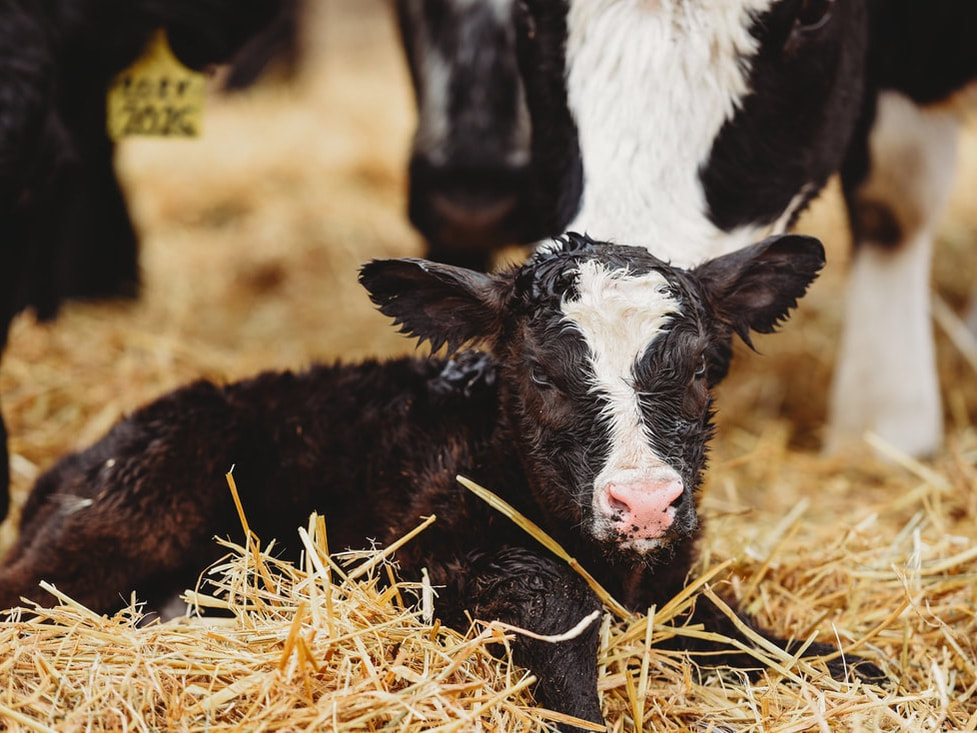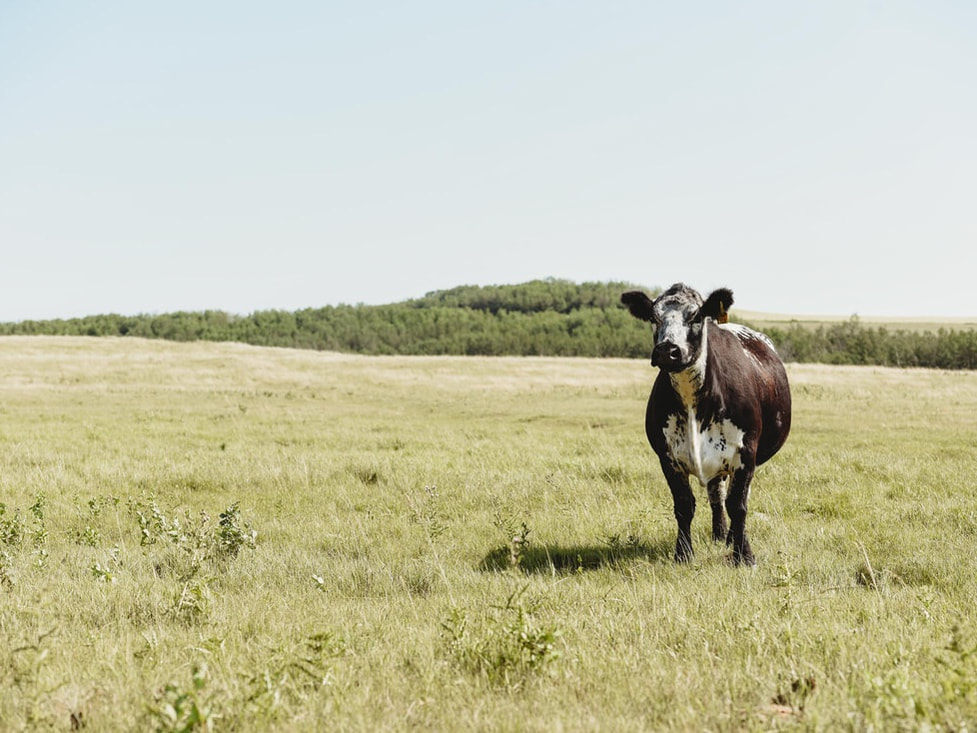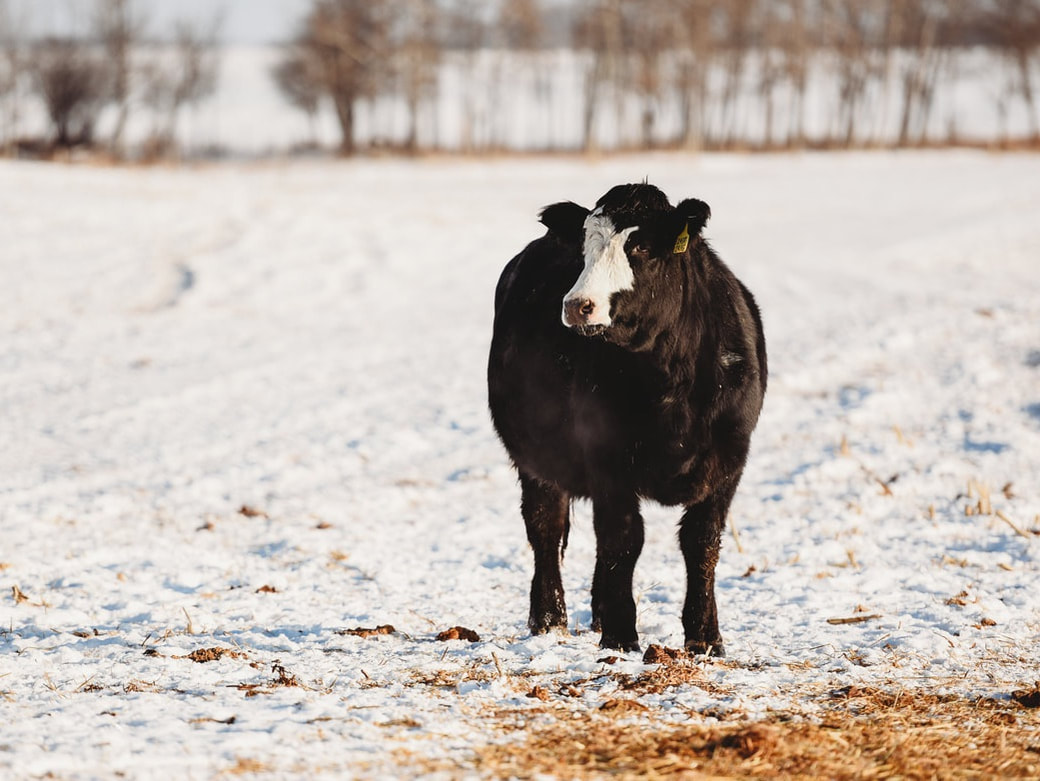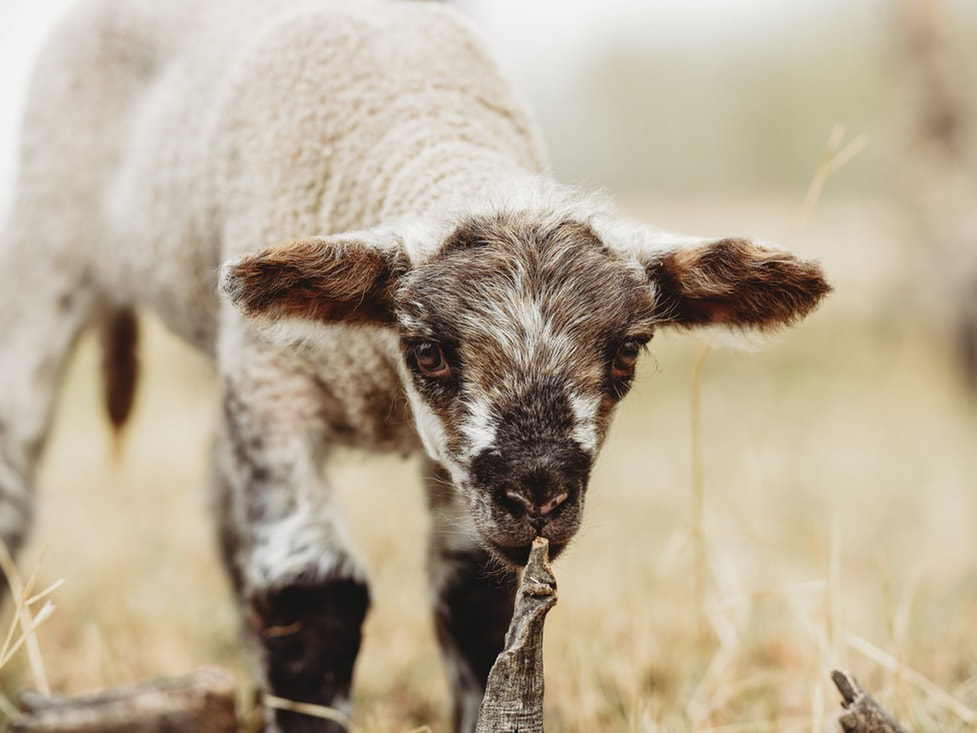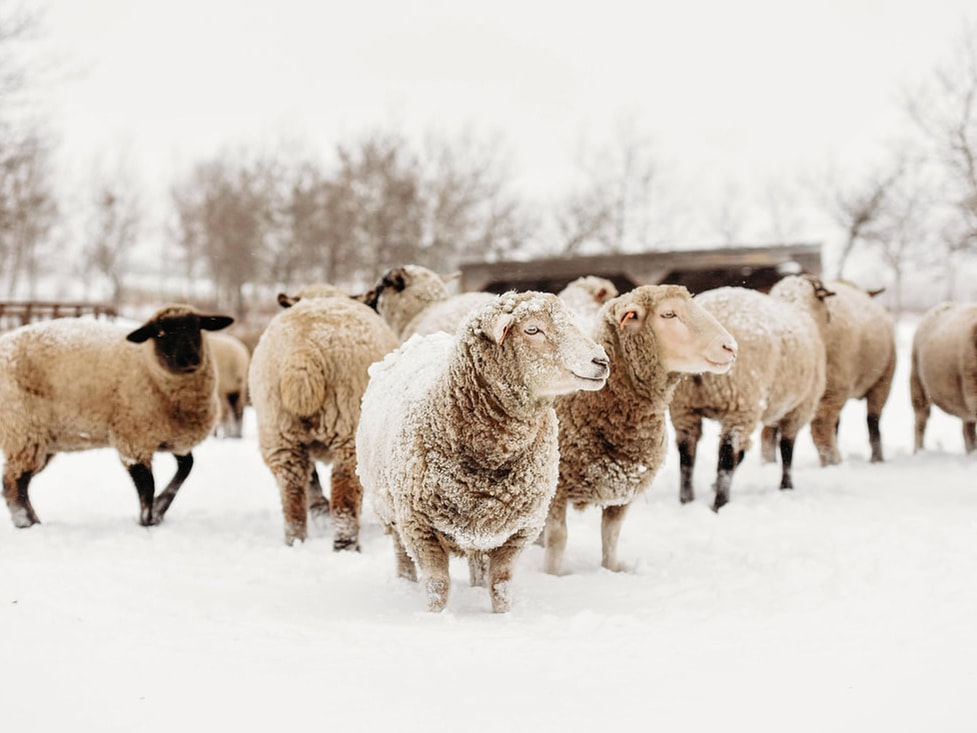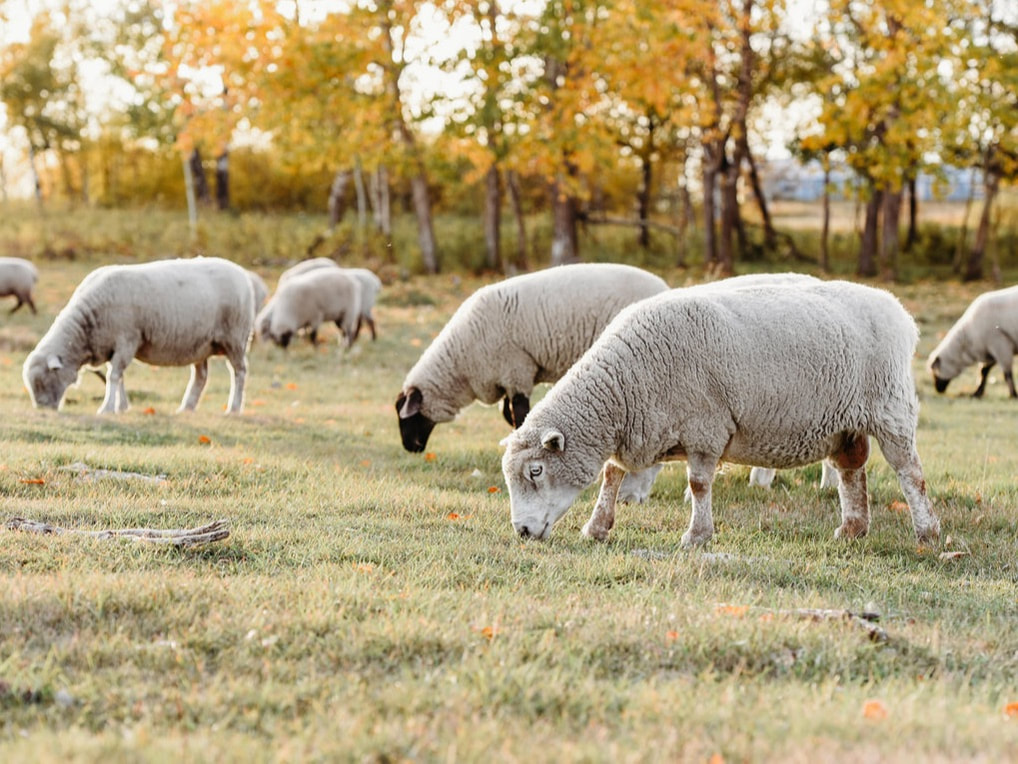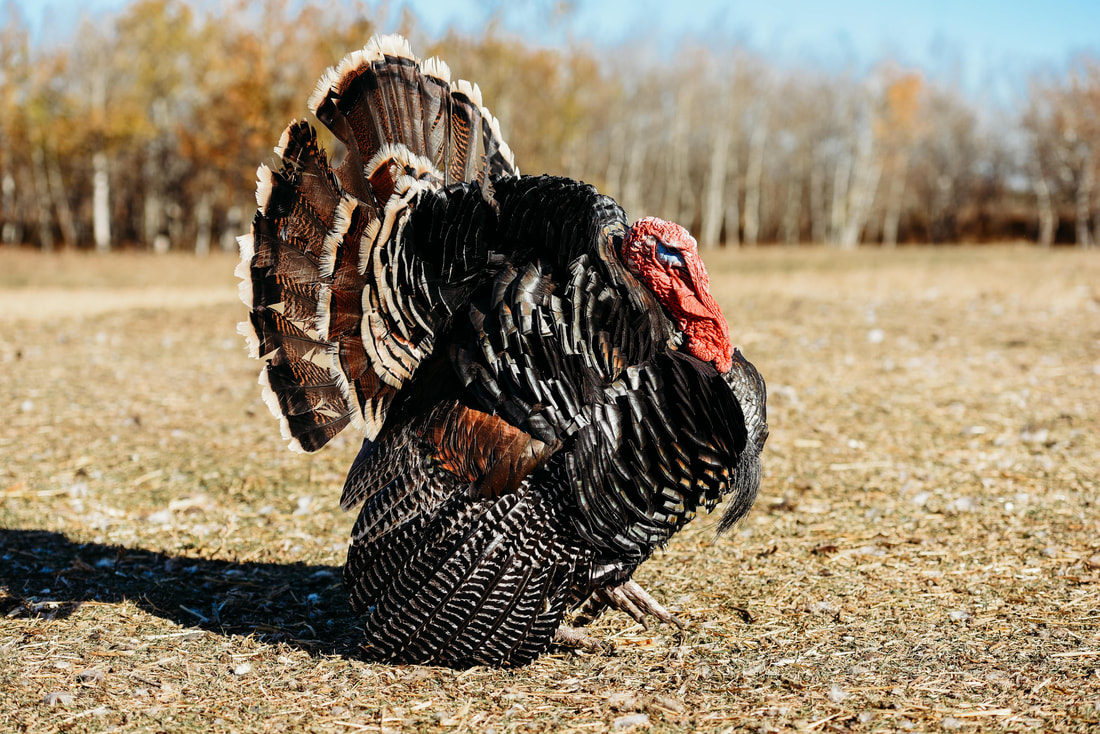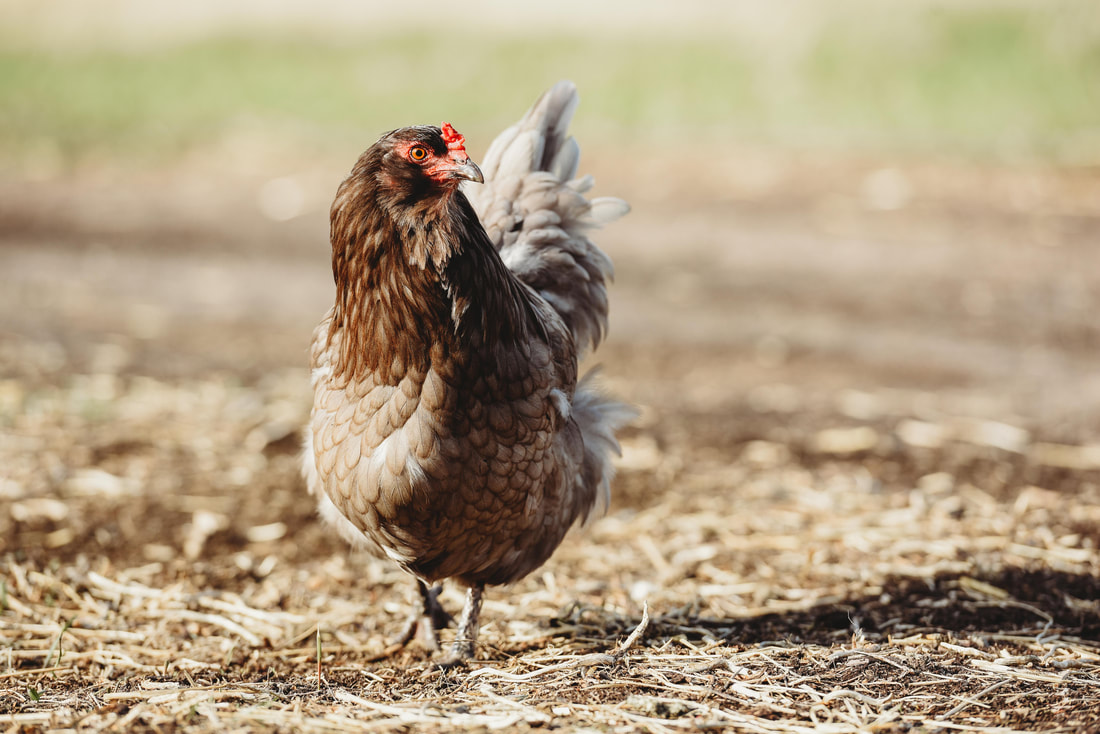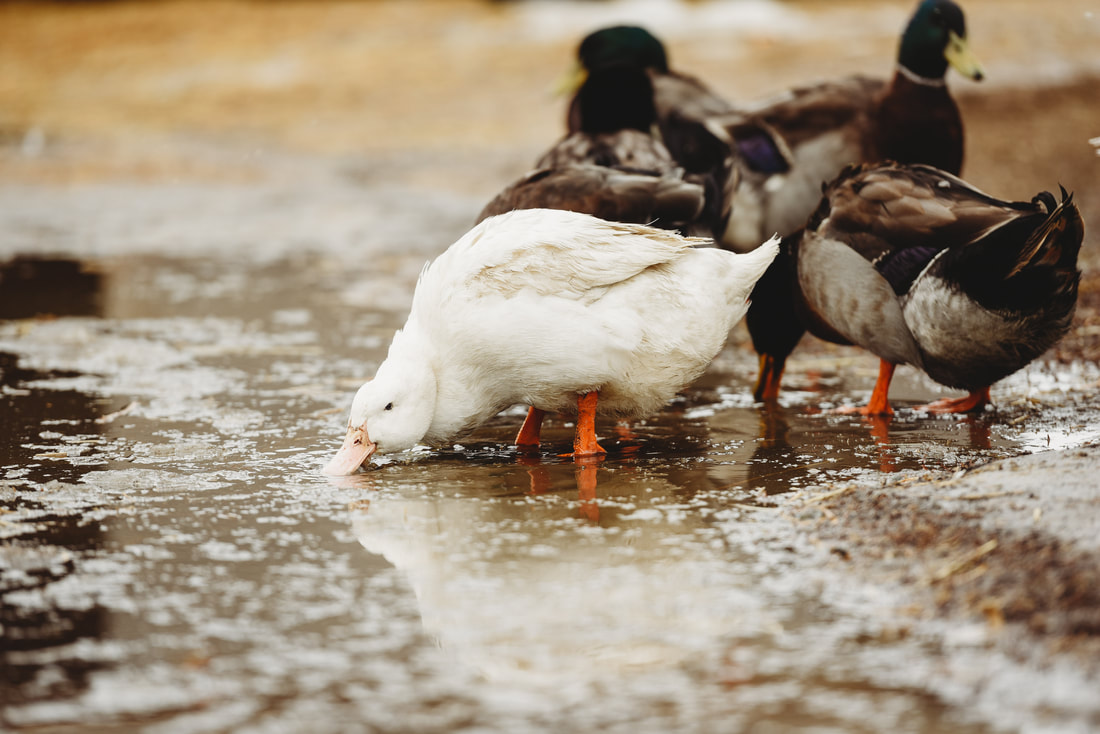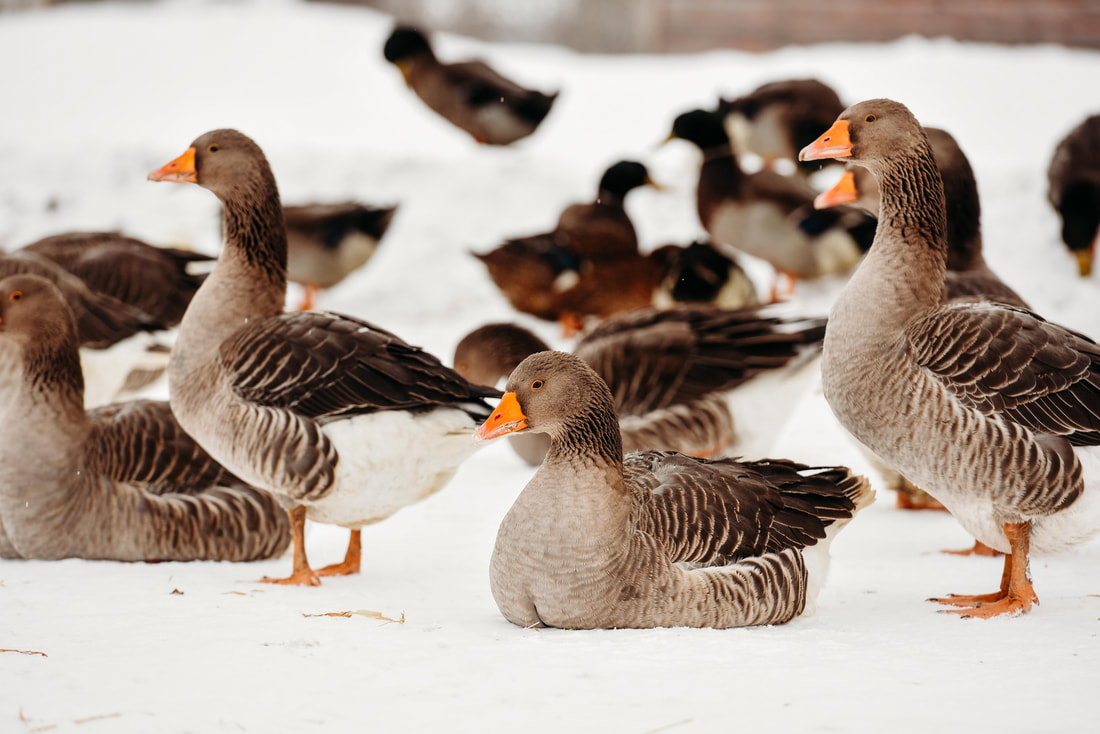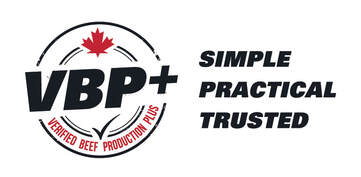The Animals of Chatsworth Farm
Cattle
We have a beef cow-calf and finish farm, which means we raise our calves from birth until they are ready to be butchered. The female calves (heifers) are added to the herd as breeding stock, and the male calves (steers) are raised for beef. At the moment, we have 150 breeding female, so in the summers with their calves, along with the bulls, heifers and steers, there are approximately 400-500 animals, depending on the year and season. Our cattle are primarily Black Angus and Simmental.
The purebred cows calve from January to March and the commercial cows calve from March to the end of April. Calving after the long winter makes for healthier calves, happier cows, and happier farmers too. Our cattle are naturally raised, primarily on native grasses. Because of our very cold Alberta winters, the winter feed program is robust with the cattle getting daily feedings of hay, silage, and straw between October and May. In the spring, summer, and autumn, our cattle graze on pasture using a rotational grazing system to maintain the health of the grass and the cattle.
The purebred cows calve from January to March and the commercial cows calve from March to the end of April. Calving after the long winter makes for healthier calves, happier cows, and happier farmers too. Our cattle are naturally raised, primarily on native grasses. Because of our very cold Alberta winters, the winter feed program is robust with the cattle getting daily feedings of hay, silage, and straw between October and May. In the spring, summer, and autumn, our cattle graze on pasture using a rotational grazing system to maintain the health of the grass and the cattle.
Sheep
We added sheep to the farm in 2013 and our current flock consists of Dorset x Suffolk ewes, purebred Hampshires, and Suffolk. We use a Suffolk ram on our ewes which produces lambs that are hardy, fast to mature, and tender and flavourful meat. In the summer, the sheep graze on native and tame pastures protected by our Great Pyrenees guard dog, Fred. During the very cold Alberta winters, our winter feeding program includes some grain we've grown to keep their energy levels up, with lots of alfalfa hay from our pastures.
Our flock lambs in April, and lambs are ready for butchering in about eight months. At each step of the process, from pasture rotations to the local provincially inspected butcher, stress is minimized.
Our flock lambs in April, and lambs are ready for butchering in about eight months. At each step of the process, from pasture rotations to the local provincially inspected butcher, stress is minimized.
Poultry
We raise chickens (both layers and broilers), turkeys, ducks, and geese on our farm. They're pasture-raised and raised on naturally grown grains from our own farm including wheat, peas and flax. During the spring and summer, they graze around the farmyard also protected by Lizzie and Fred and also enjoy extra vegetables and fruit from the garden. Winter in Alberta is not poultry-friendly so the birds spend most of their time in their warm insulated buildings where they are happy to move around freely inside, but they still enjoy going outside in the snow if it's not too cold and the chickens are given as much of our own alfalfa hay as they can eat. The alfalfa is very rich in protein, calcium, and other minerals.
The laying hens are hatched on our farm out of our own eggs or from other local Canadian breeders. We raise a variety of different heritage breeds for eggs, including Lavender Orpingtons, Silver-laced Wyandottes, Marans, Ameraucanas, Easter Eggers, and Oliver Eggers.
Several years ago we added Toulouse geese, Pekin Ducks, and Rouen Ducks. We raise the waterfowl for table eggs -- eggs from the ducks and geese are incredible to bake with -- and for hatching eggs.
We raise heritage turkeys from start to finish just like our beef and lamb. We have a flock of Bourbon Red and Ridley Bronze turkeys and hatch our own poults in the later winter/early spring. Heritage turkeys can breed naturally unlike modern commercial breeds, so they're much more sustainable and hardy.
Our poultry are never fed soy and receive home-grown corn silage in limited quantity just as a boredom buster in the winter (corn silage includes stalks, leaves and whole kernels and is a small part of their diet). As with all of our other animals, they receive no routine antibiotics.
The laying hens are hatched on our farm out of our own eggs or from other local Canadian breeders. We raise a variety of different heritage breeds for eggs, including Lavender Orpingtons, Silver-laced Wyandottes, Marans, Ameraucanas, Easter Eggers, and Oliver Eggers.
Several years ago we added Toulouse geese, Pekin Ducks, and Rouen Ducks. We raise the waterfowl for table eggs -- eggs from the ducks and geese are incredible to bake with -- and for hatching eggs.
We raise heritage turkeys from start to finish just like our beef and lamb. We have a flock of Bourbon Red and Ridley Bronze turkeys and hatch our own poults in the later winter/early spring. Heritage turkeys can breed naturally unlike modern commercial breeds, so they're much more sustainable and hardy.
Our poultry are never fed soy and receive home-grown corn silage in limited quantity just as a boredom buster in the winter (corn silage includes stalks, leaves and whole kernels and is a small part of their diet). As with all of our other animals, they receive no routine antibiotics.
Pigs
|
Our farm is part of the Verified Beef Production+ program, a voluntary program which recommends best production practices for farmers and ranchers to reduce food safety risks during beef production for customers who demand more transparent, accountable, and sustainable beef production, and expect assurances on sound animal care, environmental stewardship, and adherence to animal health and disease control practices.
We are also part of the Canadian Program for Certifying Freedom from Growth Enhancing Products (GEPs) for Export of Beef to the EU. Our steers aren’t implanted with hormones or fed routine antibiotics so they grow naturally and produce well-marbled and flavourful beef. |
